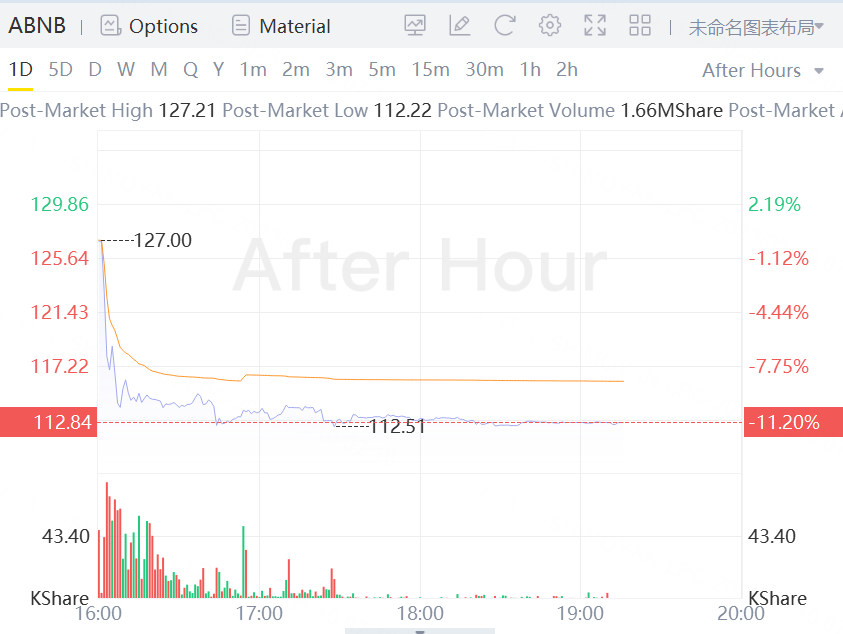Nights booked on Airbnb Inc. hit a record high in the first quarter as more guests traveled overseas and returned to cities, leading to the company's first profitable start to the year on record, executives announced Tuesday.
But executives' forecast was less bullish, even though they expect a strong summer travel season and second-quarter revenue growth. They cautioned that growth in nights and experiences booked will be "unfavorable" compared with the year-ago quarter, when there was a surge in travel demand as fears about the COVID-19 omicron strain subsided.
Airbnb $(ABNB)$ shares fell as much as 11.2% after hours, after rising 1% in the regular session to close at $127.07.
The alternative-accommodations booking company saw 121.1 million nights and experiences booked, its highest quarterly number ever, though that was lower than the 121.6 million nights expected by analysts surveyed by FactSet. Gross bookings value, or GBV, totaled $20.4 billion, higher than the $20.1 billion analysts expected. Average daily rates were $168.43, compared with the $164.80 expected by analysts.
"We are now twice the size as we were before the pandemic on both a GBV and revenue basis -- and with considerably higher profitability and cash flow," the company's executives said in a letter to shareholders. Free cash flow climbed 32% year over year to $1.6 billion.
Long-term stays, or stays for 28 nights or longer, were 18% of total gross nights booked, a decline from the previous quarter, when they accounted for 21% of total nights booked. But Chief Executive Brian Chesky said on the company's earnings call that though "we are seeing some equilibrium" -- more employees are being called back to working in the office -- he remains "extremely bullish" about long-term stays because the pandemic opened the door to what he thinks is permanent flexibility.
Chesky also said on the call that Airbnb is listening to travelers who are concerned about prices, and that the company's recent reintroduction of Airbnb Rooms is an effort to address that. The rooms within hosts' homes cost an average of $67 a night, he said.
"Lowest price listings have the highest occupancy," Chesky said, adding that that's why he's optimistic about the prospects for Airbnb Rooms, which he also called a way to attract travelers on a budget, especially in this economy, and younger travelers.
See: Airbnb has a new, old plan to eat into hotel business
Airbnb reported its first profitable first quarter, with net income of $117 million, or 18 cents a share, compared with a loss of $19 million, or 3 cents a share, in the year-ago period. Adjusted earnings before interest, taxes, depreciation and amortization (Ebitda) was $262 million, better than the $259 million analysts expected.
Revenue rose to $1.82 billion from $1.51 billion in the year-ago quarter, beating analysts' expectation of $1.79 billion.
Airbnb expects second-quarter revenue of $2.35 billion to $2.45 billion. Analysts had forecast revenue of $2.42 billion. The company expects adjusted Ebitda to be in line with the year-ago quarter, though it expects adjusted Ebitda margin to be lower because of the timing of marketing spending. Analysts expect adjusted Ebitda of $834 million.
When asked to explain the timing of spending on marketing, Chief Financial Officer Dave Stephenson said on the call that marketing needs to be done earlier, ahead of peak travel season.
Executives also announced Tuesday that the board has approved a new stock buyback of up to $2.5 billion.
Shares of Airbnb have risen 50% year to date, while the S&P 500 index has increased about 7% so far this year.


